Past Grad and Post-Grad Members
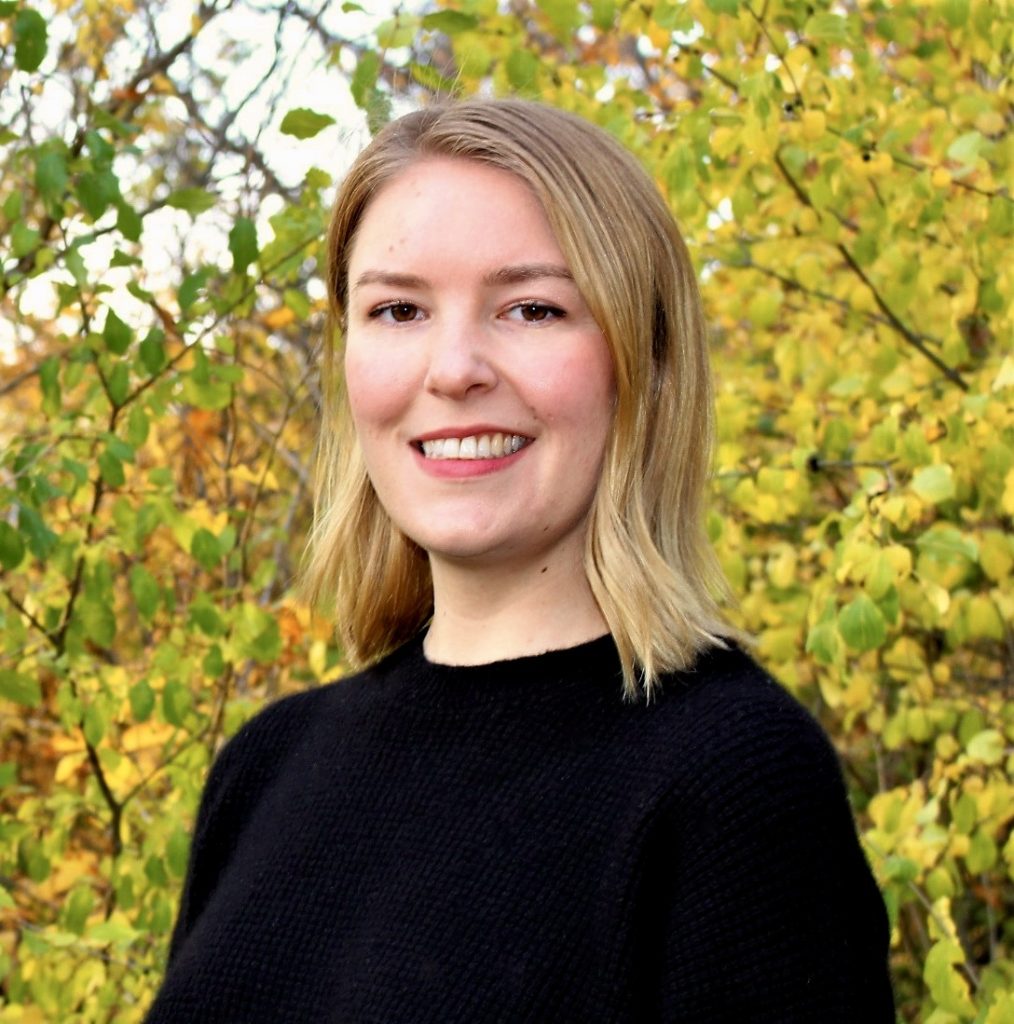
Danae Suchan, MSc
Danae earned her Master of Biology degree in 2021 under the supervision of Dr. Andrew Cameron. Her research involved the application of advanced genetic sequencing techniques to diverse fields of microbiology: zoonotic disease, agricultural plant-microbe interactions, bioremediation, and bacterial community geochemistry.
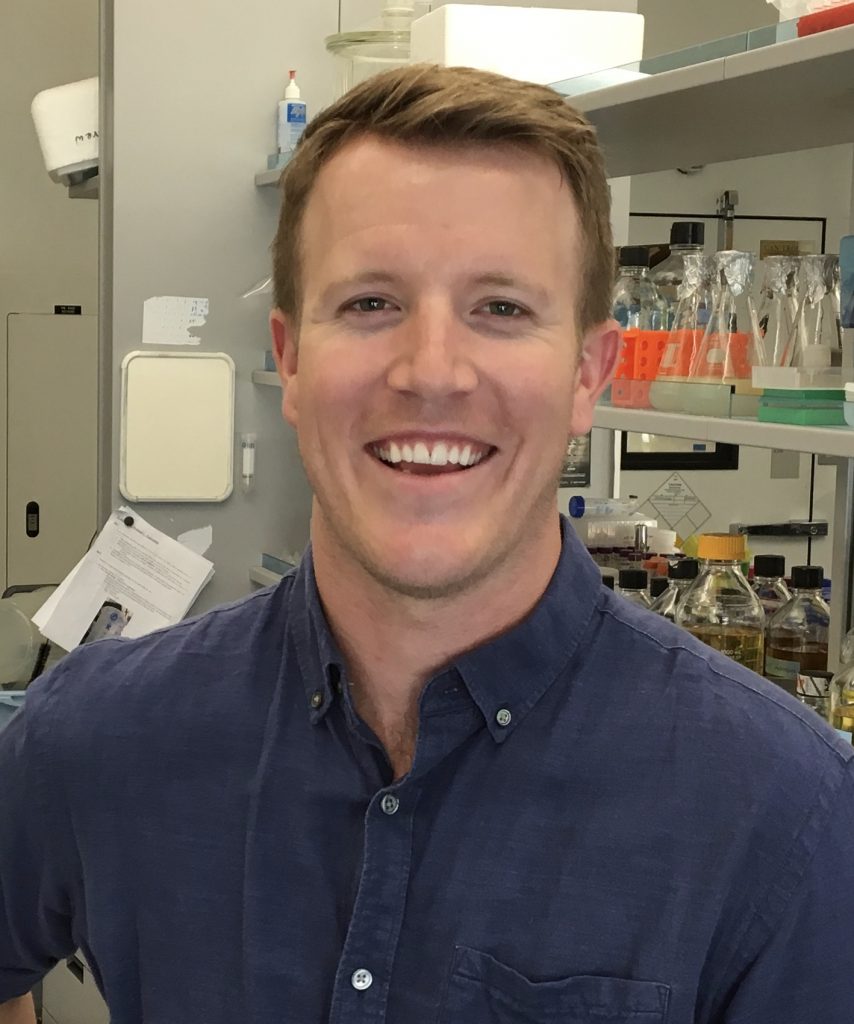
Sean Workman, PhD
Sean earned his PhD in Biochemistry in 2019 while under the supervision of Dr. Natalie Strynadka at the University of British Columbia. Sean’s doctoral research focused on the structural and functional characterization of enzymes involved in the synthesis and recycling of bacterial cell wall carrier lipid, with a particular focus on membrane proteins. Sean’s postdoctoral research at IMSS focused on the development and application of transposon insertion sequencing techniques to investigate genetic interaction networks in bacterial pathogens.

Zohra Zahir, PhD
Zohra successfully defender her PhD in the spring of 2025. Under the supervision of Dr. Britt Hall, Zohra collaborated with IMSS since the start of her program. Her research focused on the biogeochemical cycling and methylation of mercury by microbes in prairie ponds. She was mentored by Dr. Cameron, who was on her committee. She considers herself a “permanent guest” of IMSS.

Mina Shirazi, MSc
Mina defended her MSc in the fall of 2024.
My research is focused around plant-microbe interactions, with a specific focus on the importance of genes related to erythritol catabolism and nodule competition in Rhizobium strains within legumes such as peas, lentils, and vetch. In my work, I cultivated these plants and employed various molecular methods to examine their interactions.
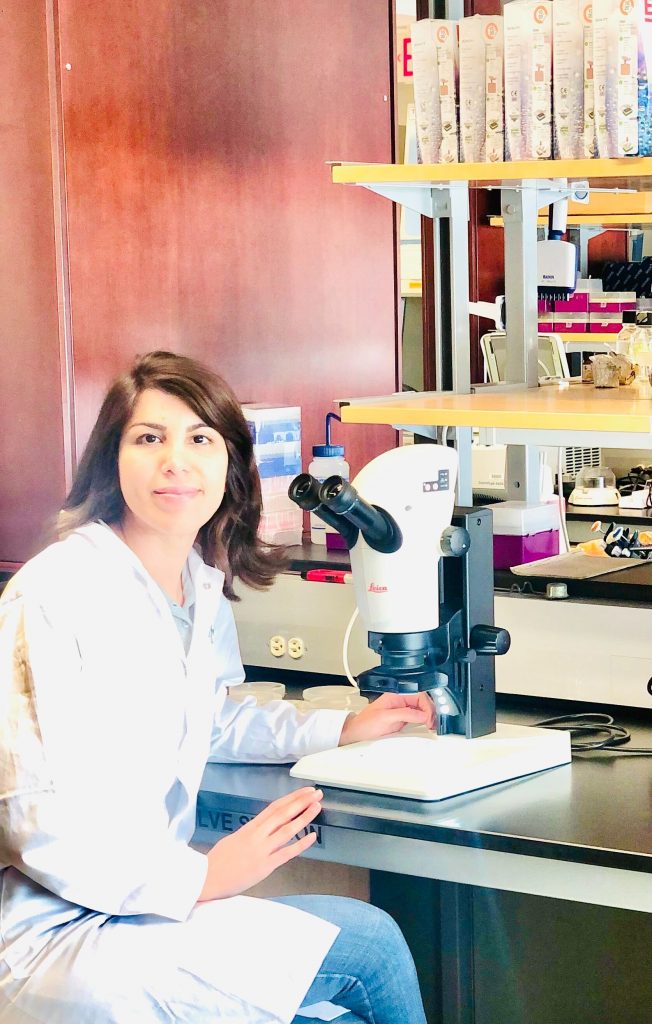
Samira Safari, PhD
Samira worked as a postdoctoral fellow in the IMSS studying morphological and molecular
identification of pathogenic microorganisms causing diseases on quinoa in western Canada.
She earned her Ph.D. in plant pathology from the University of Alberta under supervision of
Dr. Chatterton. During her doctoral program, she worked on quantification of soilborne fungi
and oomycetes by qPCR and developing a disease prediction model for pea root rot disease
based on pathogens DNA quantity.

Priya Verma, MSc
I am working on an interdisciplinary Masters in Kinesiology and Biology, co-supervised by Dr. Julia Totosy de Zepetnek and Dr. Andrew Cameron. My research examines the gut microbial communities, cardiometabolic health, mental health, and lifestyle factors in a cohort of healthy older adults. A secondary objective is to compare participants’ gut bacterial compositions to the literature to assess whether regular exercise and a healthy diet have attenuated age-associated gut dysbiosis in this cohort.

Mohammad Ruhul Amin, PhD
My research project is to discover genetic networks involved in multiple facets of Salmonella physiology including antibiotic resistance, survival in acidic conditions and natural competence using the genome-wide transposon mutagenesis and screening technique, INSeq. The antibiotic resistance project also includes identifying the genes responsible for multi-drug resistance in a clinical isolate of Klebsiella.
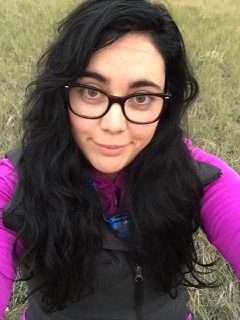
Kirsten Palmer, PhD
Bumble bees are proficient pollinators of many natural and agricultural landscapes, however, in recent years some species are experiencing dramatic declines in parts of their ranges. My research focuses on one of the main contributing causes of these declines, pathogens. My research interests include disease prevalence and characterization of novel pathogens using state of the art molecular approaches.
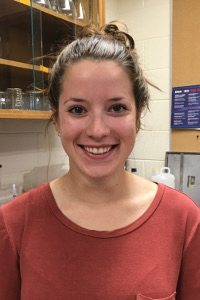
Nicole Lerminiaux, PhD
I sampled dugouts for bacterial plasmids to identify groups of genes that co-occur together. I was interested in how antimicrobial resistance genes persist in dugouts over time and how they are influenced by cattle presence.
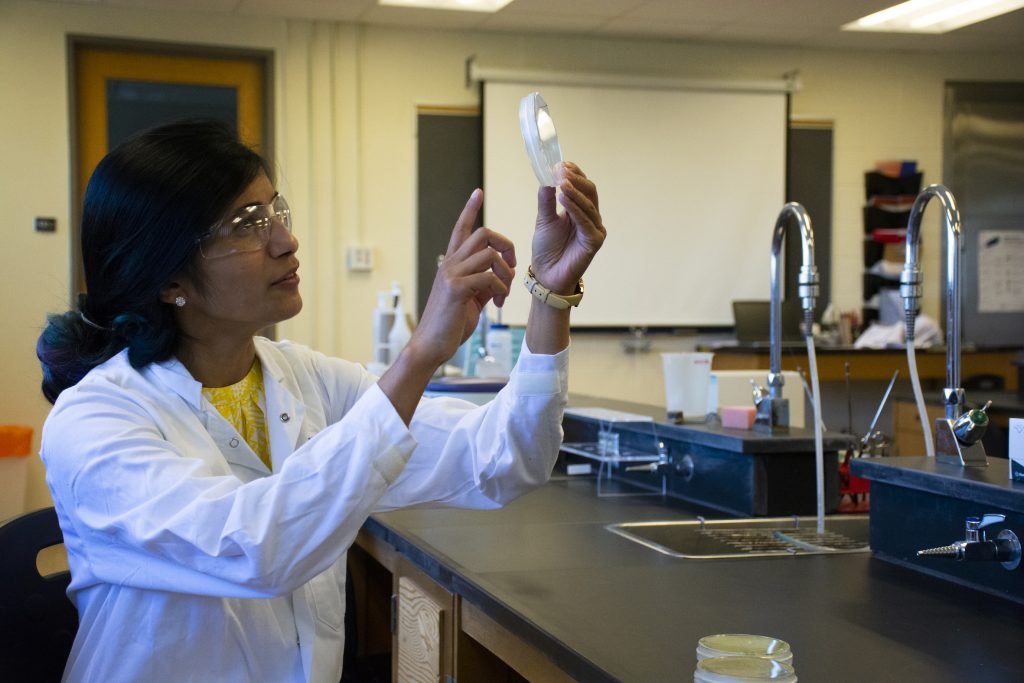
Maria Davis, PhD
Dr. Davis was a Laboratory Instructor in the Department of Biology at the University of Regina where she taught genetics and plant physiology lab courses.
Her research with primarily undergraduate students focused on stress responses in microorganisms, insect microbiomes and discipline-based education research to enhance her laboratory courses.

Nikki Burnett, MSc
My research focuses on measuring the changes in the rhizosphere microbial community of peas and lentils in response to an infection caused by Aphanomyces euteiches. This pathogen is persisting in Saskatchewan fields with very few methods for control. Within my research, I hope to find a microbial community that impacts, by either inhibiting or enhancing, the infection severity of A. euteiches.
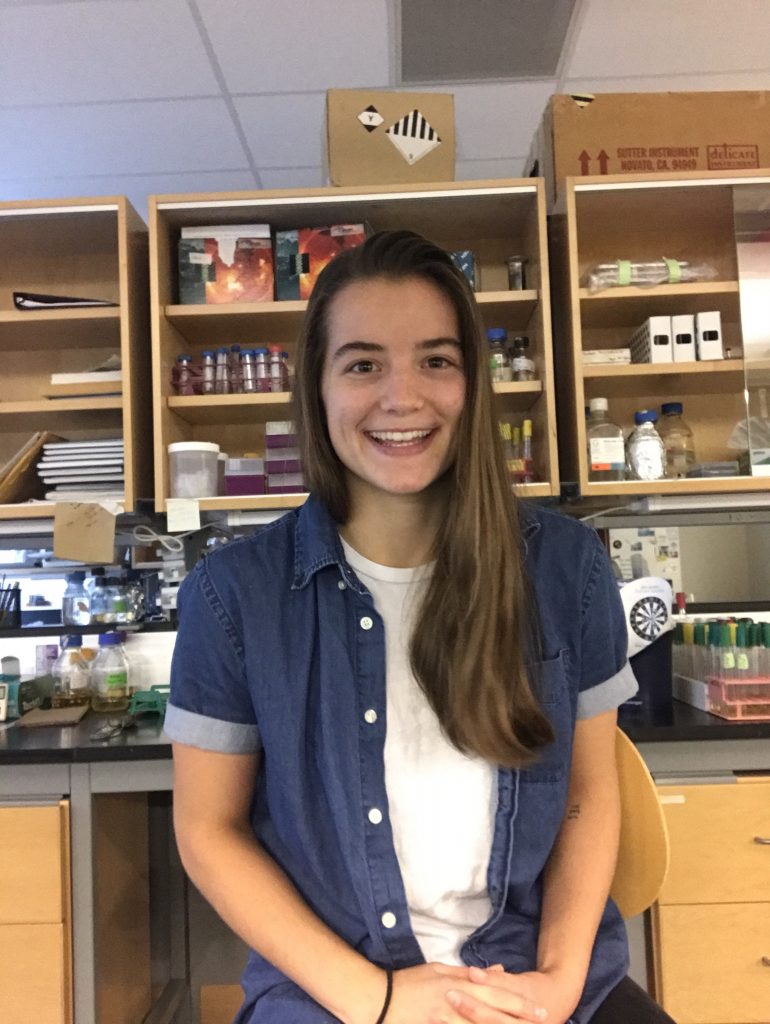
Kevina Mullock, MSc
Kevina focused on gaining insight in mixed microbe community competition and how it affects legume root colonization and soil fertility. She used transcriptomics to discover novel gene functions that have the potential to improve the competitiveness of soil inoculants.
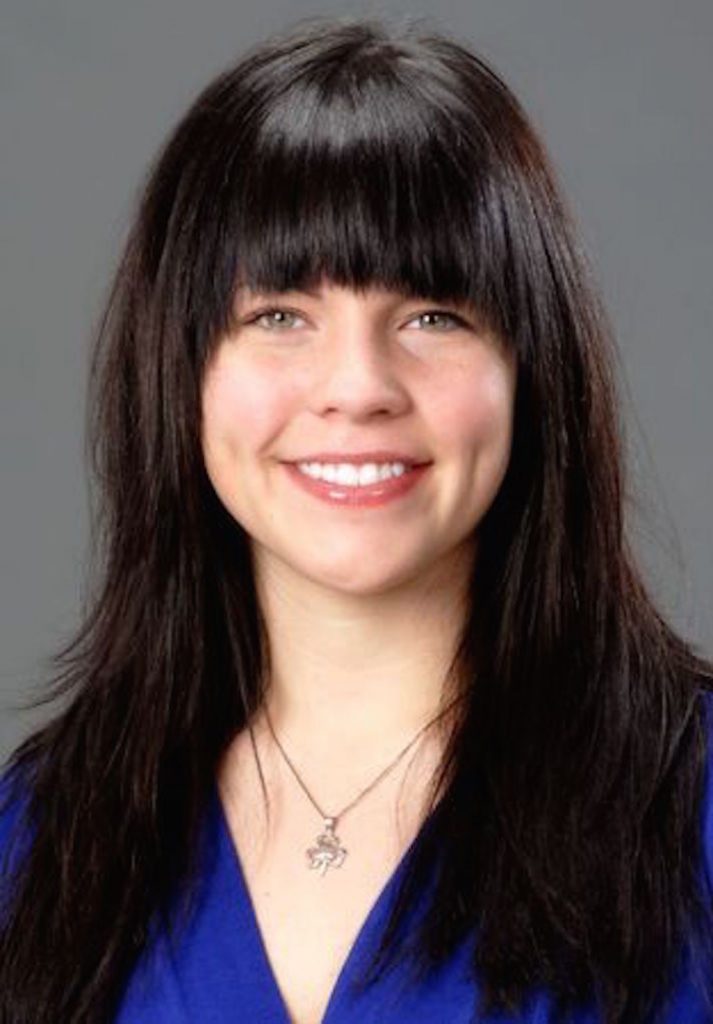
Kara Loos, PhD
Kara worked as a Genomics Research Associate with the IMSS group, working both as a project manager as well as on various different sequencing projects with collaborators. These projects include 16S community sequencing, RNA-Seq, whole genome sequencing, In-Seq and Oxford-Nanopore sequencing, on both environmental and clinical samples. In addition to collaborative projects, her role in IMSS is to assist other faculty members in using IMSS technologies and resources, facilitate student training and project support, and to aid in seeking new regional, national, and international collaborative ventures.
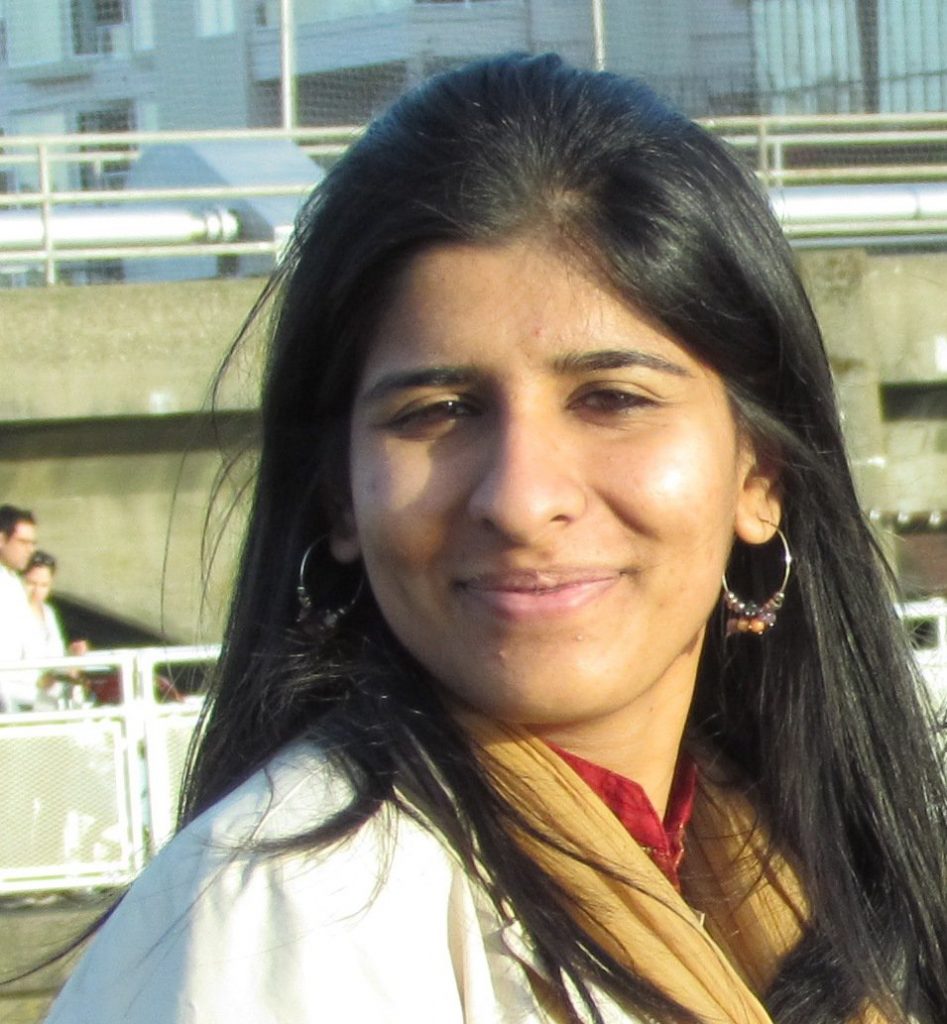
Aditi Sharma, PhD
Aditi was a MITAC postdoctoral fellow and a budding “genome shuffler” in the laboratory of Dr. Christopher Yost. She worked towards generating rhizobial strains that have higher on-seed survival and performance using protoplast fusion. Additionally, she used Next Gen Sequencing to understand the factors regulating desiccation tolerance in Bradyrhizobium strains.
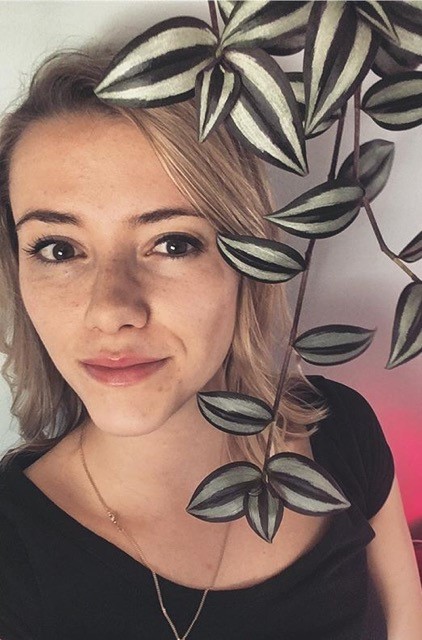
Alexa Pierce, MSc
My research focused on understanding why and how bacteria are able to enhance plant growth. Specifically, I was interested in determining the mechanism of plant growth promotion of a particular bacteria that improves the yield of rice. I used radionuclides and position emission tomography (PET) to quantify, visualize and track nutrient allocations in plant systems to gain a better understanding of the plant-microbe interactions taking place.
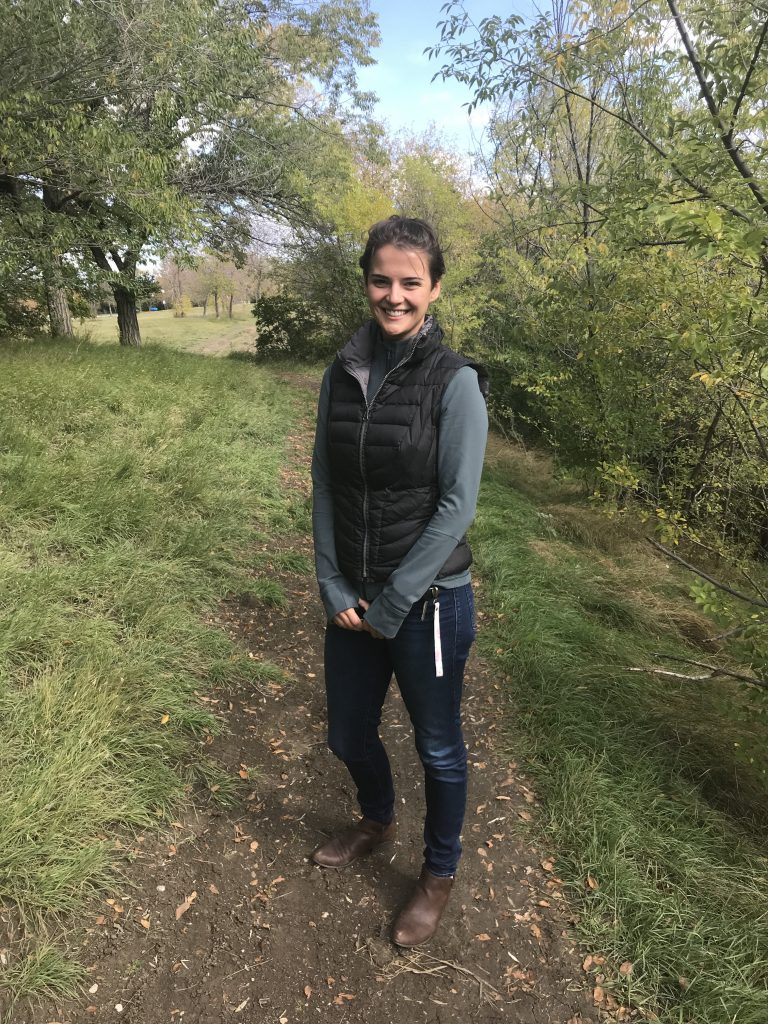
Claire Freeman, PhD
Wastewater treatment plants (WWTPs) are essential in limiting negative anthropogenic effects on the environment by minimizing the release of nitrogen, phosphorus and bacteria. My research focuses on the microbial communities in biological nutrient removal (BNR) systems and how they respond to seasonal fluctuations in temperature.
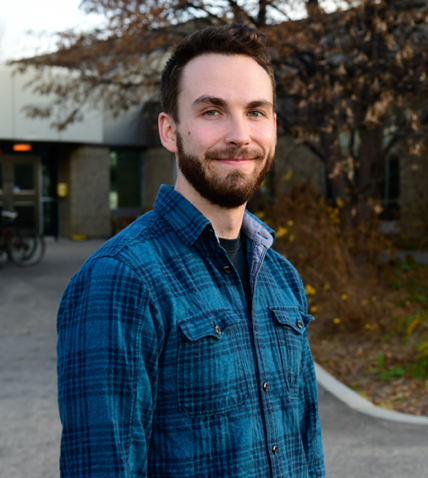
Keith MacKenzie, PhD
Keith was an NSERC postdoctoral fellow and bacterial geneticist in the laboratory of Dr. Andrew Cameron. During his fellowship, Keith specializing in the implementation of whole genome sequencing and bioinformatic approaches to improve infectious disease surveillance and diagnostic tools. His primary work was focused on evaluating the diversity of Mycobacterium avium subspecies paratuberculosis (MAP) strains within Saskatchewan cattle and developing new genomics-based diagnostics for the efficient and effective detection of this pathogen.
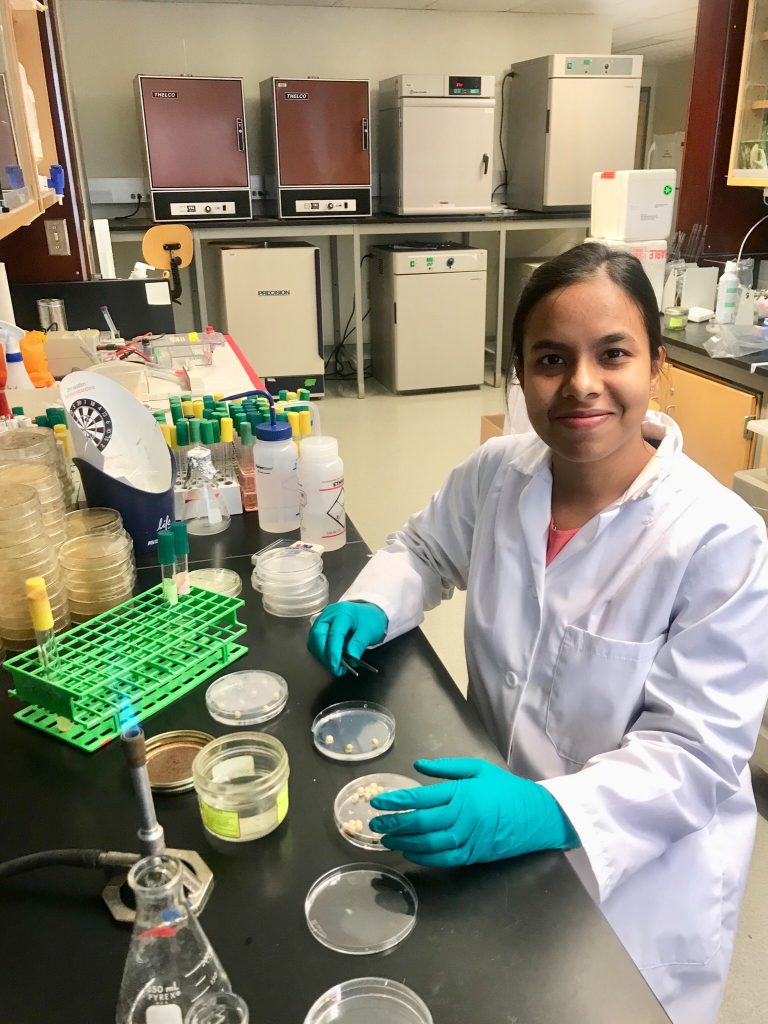
Mir Salma Atkar, PhD
My research focused on studying the genes involved in maintaining a functional cell envelope in the pea-lentil nodulating bacteria Rhizobium leguminisarum and identifying the genes/genetic networks needed for survival fitness of rhizobia to interact with the signal peptides like NCRs produced by the host legume plants. To conduct my research I applied a high throughput genetic screening technique, Insertion Sequencing or INSeq, which helped us to reveal essential genes in rhizobia for a given condition.
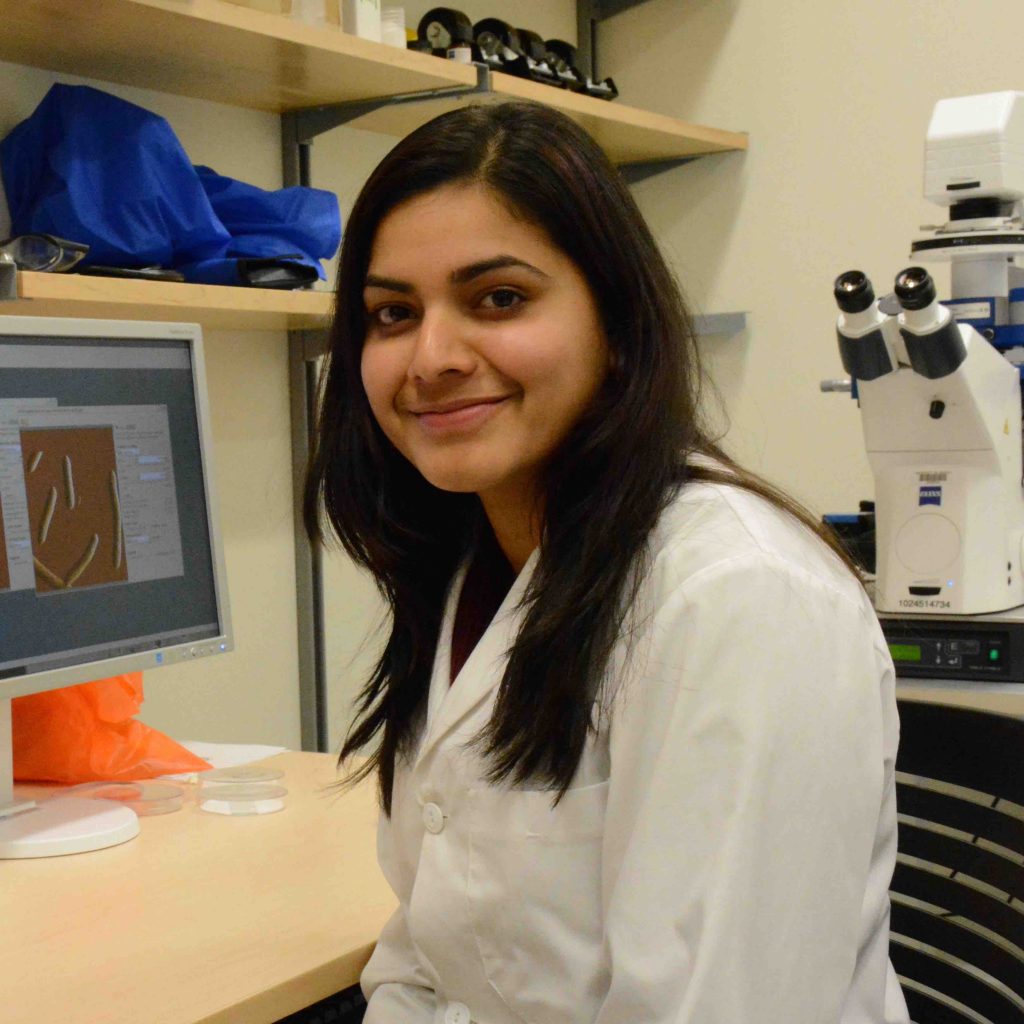
Supriya Bhat, PhD
Supriya worked on an industry collaborative postdoctoral project with Lallemand Plant Care in the Yost Lab. Her project was aimed at understanding the genetic networks of a plant growth promoting bacteria and its potential role in assisting with iron acquisition in Soybean using transcriptomics. Supriya also spent time in the Cameron lab, where she worked on many projects that broadly focused on understanding the mechanisms of multi-drug resistance and competence systems in Enterobactericeae using next-generation sequencing technologies such as Illumina and Oxford-Nanopore.

Jordyn Bergsveinson, PhD
Jordyn was a microbial ecologist with the IMSS group and works to design, develop, and support projects that analyze microbial communities. Her academic and industry experience includes work with environmental bioremediation, industrial fermentation, and microbial food spoilage.
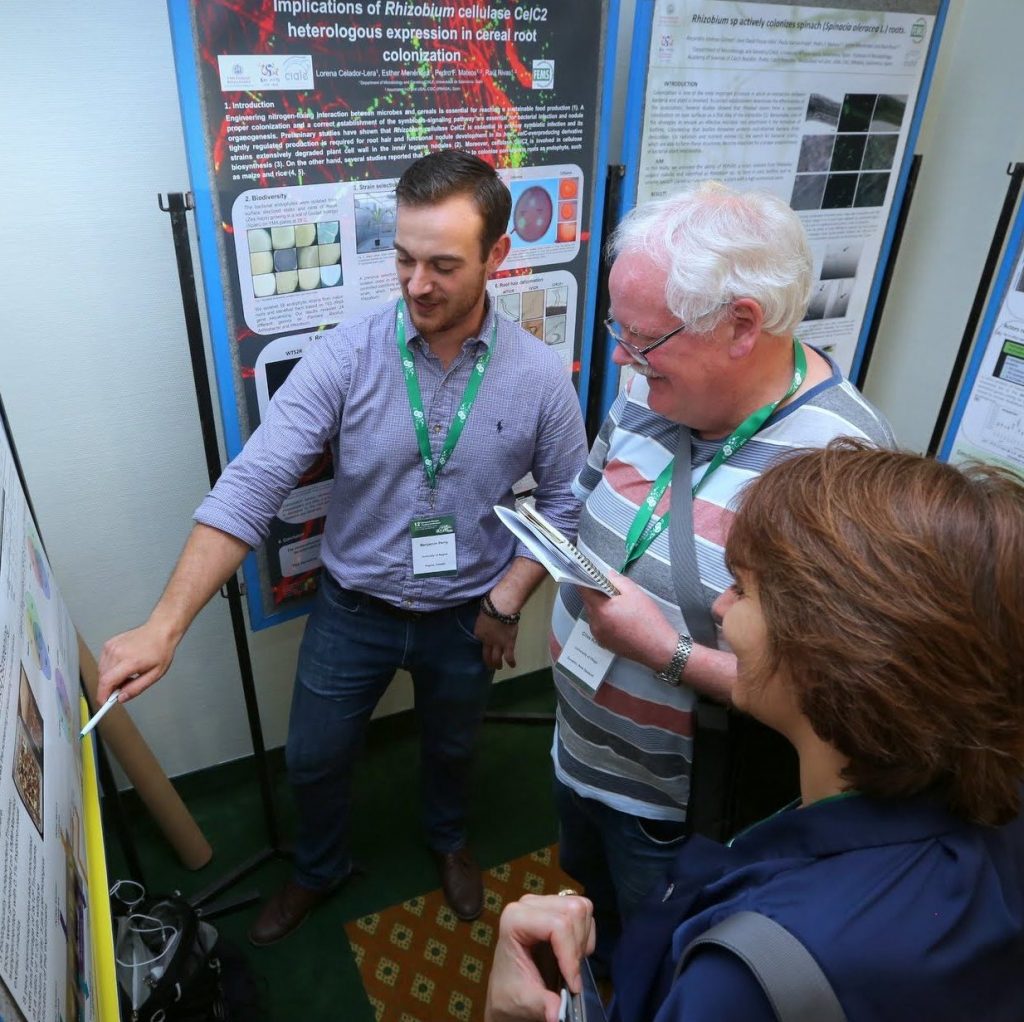
Ben Perry, MSc
Ben’s individuals projects included developing high-throughput loss of function screening in rhizobia bacteria using transposon insertion sequencing. He was also involved in our collaboration with Agriculture and Agri-Food Canada to describe microbial communities found within on-farm biobeds, designed to remediate pesticide residues and reduce pesticide runoff, using metagenomic and metatranscriptomic approaches.

Morgan Kirzinger, MSc
During my time as a bioinformatician for IMSS, I generated bioinformatics pipelines for next generation sequencing data analysis for RNASeq experiments, variant calling, genome assembly, and annotation pipelines, as well as running analysis on large genomic datasets.
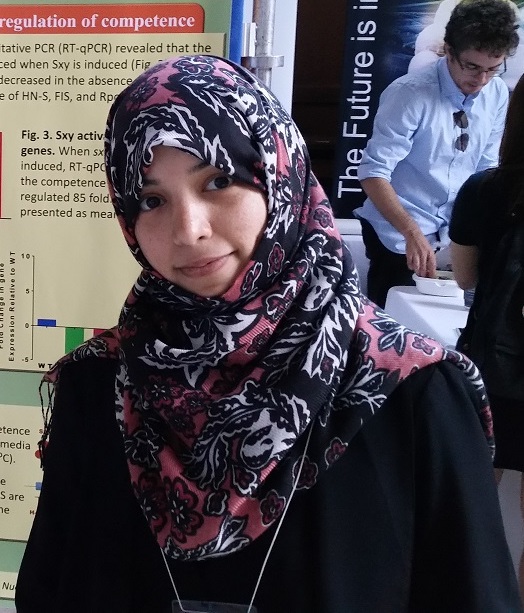
Ebtihal Alshabib, PhD
Many bacteria have the ability to uptake DNA from the environment, this phenomenon termed “natural competence”. I’m interested in studying the genetic induction and regulation of natural competence in Salmonella and E. coli. Additionally, I’m interested in studying the metabolism of oil-degrading organisms.

Dinah Tambalo, PhD
Dinah played a very important role in the overall function of the lab. She provided research support to both the Rhizobium discovery based research program and the environmental water quality and food safety program. Dinah’s individual projects included describing the molecular mechanisms of swarming behaviour in Rhizobium leguminosarum and working with our partners in the Saskatchewan Vegetable Growers Association to protect fresh produce from microbial threats.